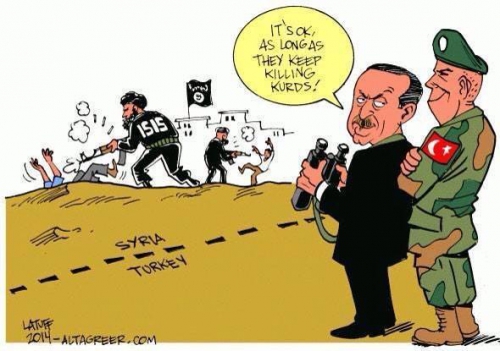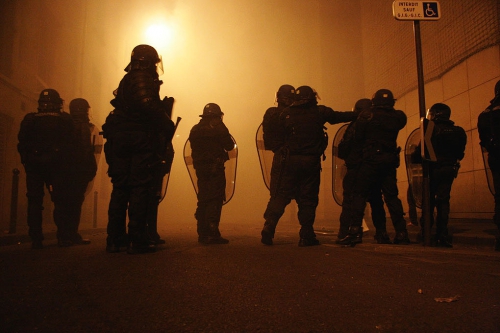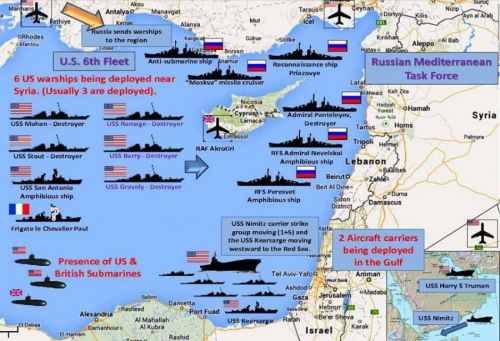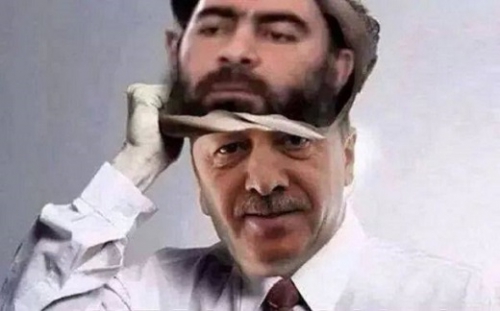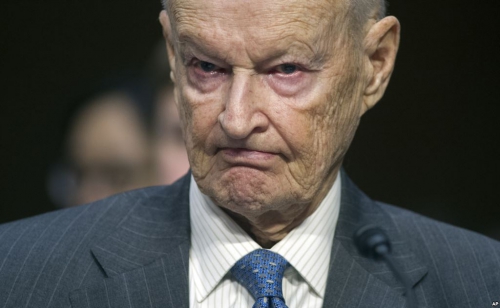por Youssef Hindi*
Ex: http://paginatransversal.wordpress.com
¿Está la sumisión de Francia al campo atlantista en el origen de los atentados?
Una cosa es cierta, Francia no ha sido golpeada por el terrorismo debido a su lucha contra él, sino indirectamente a causa de su apoyo a los terroristas. Esos rebeldes considerados moderados como los de Al-Nusra, alias Al Qaeda, sobre quienes Laurent Fabius nos dijo en diciembre de 2012, que estaban haciendo “un buen trabajo”. En términos más generales, los franceses pagaron el precio de la política interior y exterior de Francia, que se alinea con la de sus enemigos objetivos: los Estados Unidos y sus aliados históricos.
El punto de partida de este análisis se sitúa a finales de los años noventa (podríamos remontarnos también al final de la Segunda Guerra Mundial), cuando Zbigniew Brzezinski, uno de los geoestrategas estadounidenses más influyentes, publicó su libro seminal, Le grand échiquier [El Gran Tablero Mundial] (1997). En ese momento, el geopolítico estadounidense veía lo que quedaba residualmente del espíritu de independencia entre los líderes franceses, bajo la presidencia de Chirac, como un obstáculo a la hegemonía estadounidense. El objetivo era entonces, de acuerdo a la lógica de Washington, el de someter imperativamente a Francia a los Estados Unidos. En 1997, Brzezinski escribió que había que “hacer de Europa uno de los pilares fundamentales de una gran estructura de seguridad y de cooperación bajo la égida estadounidense y extendida a lo largo de Eurasia“. Y continuaba: “Para decirlo sin rodeos, Europa Occidental sigue siendo en gran medida un protectorado estadounidense y sus Estados recuerdan lo que antaño eran los vasallos y los tributarios de los antiguos imperios” [1]; para hacerlo proponía “oponerse tácticamente a las posiciones francesas y apoyar el liderazgo alemán” [2]. Para los estadounidenses, Alemania se convirtió, especialmente desde la introducción del euro en 2002 (que ayudó positivamente a la balanza comercial alemana), en el pequeño imperio regional que somete a Europa a la dominación estadounidense – una condición sine qua non de su liderazgo europeo – para la neutralización de Francia, económica (con la moneda única que contribuyó a la destrucción de la industria francesa, que ya había comenzado la política del franco fuerte para preparar el país para el euro en la segunda mitad de los años 90) y diplomáticamente. Francia que ha sido, hasta hace poco, la nación europea con una visión, un peso y una ambición geopolítica relativamente autónomas. Brzezinski citaba, como ejemplo de esta clase política neo-gaullista, a Alain Juppé, el cual defendía en mayo de 1995 en la Asamblea Nacional, un afinamiento de la vocación de poder mundial de Francia, lo que Brzezinski calificaba de ilusión [3].
Esta “ilusión” desapareció completamente en mayo de 2007 con la llegada al poder de Nicolás Sarkozy y todo un lote de atlantistas, e incluso neoconservadores, al Quai d’Orsay [Ministerio de Asuntos Exteriores] y otros ministerios clave. No voy a mencionar aquí uno por uno a todos los políticos y los líderes de opinión franceses y europeos cooptados por los Estados Unidos a través de organizaciones como la French-American foundation [Fundación franco-americana] y el programa de los Young Leaders [Jóvenes Líderes] [4].
Fue en 2011 cuando vimos realizarse en la práctica el proyecto de Brzezinski, cuando el atlantista Sarkozy, después de haber reducido definitivamente a Francia a un estado vasallo de los Estados Unidos, atacó Libia, y Bernard -Henry Levy cortocircuitó al ministro de Asuntos Exteriores, Alain Juppé, para comprometer a Francia en un conflicto liderado por la OTAN. Una guerra que ha costado la vida a más de un centenar de miles de libios y para el cual el contribuyente francés ha invertido más de 300 millones de euros. Esta es por otra parte una de las utilidades de la OTAN, la de hacer asumir a los vasallos europeos el coste de las guerras de Washington en lugar de a los Estados Unidos.
Pero el apoyo de Francia a los grupos terroristas es obvio (y bien documentado) desde la Guerra del Golfo de Sidra. El gobierno de Sarkozy envió agentes de la DGSE [**] para dirigir sobre el terreno a los mercenarios financiados por Qatar, y coordinar los ataques aéreos desde el territorio de los falsos rebeldes pero verdaderos terroristas que, en principio, luchaban por la libertad contra la tiranía etc. El gobierno de Hollande continuó el impulso al armar a grupos terroristas en Siria, como el ASL, una rama de la Hermandad Musulmana que comenzó la guerra en 2011 contra el gobierno de Damasco.
El 14 de agosto de 2014, Laurent Fabius, lejos de revertir su declaración de diciembre de 2012, anunció en un tweet que armas muy poderosas estaban a punto de ser entregadas a los combatientes en Siria; desde entonces, no es sorprendente ver a los miembros del Daesh, en las imágenes, portando el rifle de asalto Famas, un arma de fabricación francesa. En efecto, contrariamente a lo que pudiera pensarse, no hay fronteras ni oposición real entre las docenas de grupos terroristas que operan en Siria e Irak. Los terroristas “moderados” del ASL le entregan al Daesh, en particular a través de su aliado Al Nusra, las armas que reciben de Occidente cuando el Daesh no se beneficia de entregas directas.
Con la llegada de Sarkozy a la presidencia Francia ha tenido los dos pies en el ámbito de influencia del campo atlantista, y también se le ha visto convertirse de facto en un aliado de los principales proveedores del terrorismo internacional: Arabia Saudita y Qatar… Las dos petromonarquías con las que un cierto número de hombres y mujeres, políticos tanto de izquierdas como de derechas, mantienen vínculos particularmente estrechos…
Pocos días después de la masacre del 13 de noviembre, Manuel Valls declaró, en absoluta contradicción con la realidad de los hechos, que Qatar y Arabia Saudita, que según él combaten al Daesh, estaban decididos a luchar contra el terrorismo. Llegó incluso a señalar con el dedo los vínculos entre “el régimen de Bashar” y el Daesh.
¿Hace falta recordar que los ingleses, y los estadounidenses después de ellos, han apoyado el wahhabismo y a los sauditas desde sus primeras embestidas expansionistas en Arabia, y que han contribuido en gran medida a la difusión de la doctrina wahhabita en todo el mundo? La doctrina del terrorismo que los occidentales se sorprenden de ver influenciar a tantos jóvenes musulmanes y nuevos conversos.
¿Deberíamos también repetir que el terrorismo wahhabita ha sido desde su origen una herramienta geoestratégica de los británicos y de los Estados Unidos en contra de sus enemigos? Además, Zbigniew Brzezinski, entonces Consejero de Seguridad Nacional de los Estados Unidos bajo la presidencia de Jimmy Carter, fue el promotor de una maniobra de coordinación de la CIA con los servicios pakistaníes y saudíes con el fin de financiar y armar a los futuros terroristas, incluyendo a Bin Laden, a finales de los años setenta, para atraer a la Unión Soviética al cementerio afgano [5].
El terrorismo doméstico, ¿para qué sirve?
Curiosamente, de lo que nos atrevemos a hablar menos es del uso del terrorismo dentro del marco de la política interior, muy particularmente en tiempos de crisis. Está en efecto muy mal visto suponer que un estado occidental, “democrático” y “liberal” pueda recurrir al arma del terrorismo contra su propio pueblo; pero en lo concerniente, por ejemplo, a la reciente serie de atentados que afectaron a Turquía, grandes periódicos franceses y expertos mediáticos no han dudado en hablar de la probable implicación de los servicios secretos turcos, poniendo en evidencia, como hizo el diario Le Point, una “connivencia del poder” con los terroristas, y hablar de “dudas [en cuanto a las competencias] de los servicios de inteligencia turcos, fuertemente criticados por no haber sido capaces de prevenir el ataque mortal en Ankara” [6].
Las mismas acusaciones podrían hacerse en contra del poder francés y de los servicios de inteligencia franceses a sus órdenes. Por otra parte, el mismo periódico revelaba en 2012 las graves deficiencias de la DCRI [***] en el caso Merah. Mohamed Merah, que tenía un oficial de enlace en el DCRI y que, con toda probabilidad, trabajaba para la inteligencia nacional [7].
Porque cuando nos fijamos en los tres principales casos de terrorismo que han afectado a Francia desde 2012, se observan hechos recurrentes como documentos de identidad y pasaportes encontrados en la escena del crimen, individuos seguidos estrechamente y bien conocidos por los servicios de inteligencia, a lo que se añade el hecho de que los servicios franceses fueron advertidos en varias ocasiones por servicios extranjeros de la preparación de atentados, los de Charlie Hebdo como los del 13 de noviembre.
El turbio papel de los servicios secretos franceses en el asunto Merah llevó a una investigación parlamentaria en 2013 [8], cuyo informe revela, entre otras cosas, que los servicios actúan fuera del marco de la ley y que sus medios son risibles; lo que contrasta con el celo del gobierno en la aplicación de la ley de inteligencia (el equivalente francés de la Patriot Act I y II), cuyo objetivo aparente es más la vigilancia de la población y de los opositores políticos que la prevención el terrorismo.
De hecho, a raíz de los recientes atentados, nos enteramos por medio del antiguo director de la DCRI, Bernard Squarcini, que Manuel Valls, entonces ministro del Interior, había rechazado la lista de yihadistas franceses que quería comunicar los servicios de inteligencia sirios. Tras los atentados de 13 de noviembre, el actual ministro del Interior, Bernard Cazeneuve, reafirmó la negativa a cooperar con los servicios sirios. Así que si el ejecutivo no permite los atentados, en todo caso tampoco hace nada por prevenirlos.
 Desde entonces, según un experto de la cuestión terrorista y ex instructor del ejército alemán, Christoph Hörstel [9], asistiríamos en Francia a una gestión del terror consistente en fabricar o dejar hacer atentados para distraer a la población y sobre todo desviar su ira. Este experto afirma que todos los gobiernos miembros de la OTAN mienten, debido a que los autores de los atentados serían, según él, en el 95% de los casos, bien conocidos por los servicios de seguridad.
Desde entonces, según un experto de la cuestión terrorista y ex instructor del ejército alemán, Christoph Hörstel [9], asistiríamos en Francia a una gestión del terror consistente en fabricar o dejar hacer atentados para distraer a la población y sobre todo desviar su ira. Este experto afirma que todos los gobiernos miembros de la OTAN mienten, debido a que los autores de los atentados serían, según él, en el 95% de los casos, bien conocidos por los servicios de seguridad.
En 2009, durante una entrevista, François Hollande, entonces primer secretario del Partido Socialista, hizo acusaciones extremadamente graves. Declaró: “en el nombre de la lucha contra el terrorismo, estamos haciendo una amalgama y una confusión … uno que no está en la norma, que tiene una conducta desviada puede ser equiparado con un terrorista. Esto puede ser un grave ataque a las libertades“. Fue más lejos todavía al afirmar que “hay una voluntad política de la autoridad para dar la sensación de que existe una amenaza y que la autoridad responde, para justificar su intervención en la seguridad pública“, que describió “como una deriva de la seguridad pública que justifica leyes represivas en nombre de una amenaza que a veces es real, pero que a veces es sólo virtual, o incluso inexistente“. El propósito de esta maniobra, según François Hollande, sería “demostrar una eficacia que es deficiente en el plano económico y social…“.
El poder político y una serie de medios amalgama o confunde a sabiendas la lucha contra el terrorismo y la reducción de las libertades fundamentales [10]; ahora bien, como hemos visto, el número de atentados no disminuye gradualmente a medida que la vigilancia de la población y los opositores políticos aumenta, sino todo lo contrario…
Podemos finalmente entender este fenómeno sólo si analizamos la evolución de un régimen político que ya no es capaz de absorber la contestación y que por lo tanto corre así el riesgo de volar en pedazos, de implosionar debido a su endurecimiento, esto en el contexto de una creciente deslegitimación de la casta política francesa [11]. El peligro principal hoy es la activación de las tensiones intercomunitarias, es decir, de una confrontación horizontal que desviaría a la población francesa del verdadero objeto de contestación y de una eventual rebelión. Una eventualidad para la cual el ejecutivo se preparó el 30 de junio de 2011 (alrededor de 8 meses antes del caso Merah) mediante un decreto que autoriza a los representantes del estado, los funcionarios y los militares, a disparar munición real sobre la población para el mantenimiento del orden público [12].
Prospectiva y soluciones
La estrategia estadounidense para hacer de Europa la cabeza de puente geoestratégica fundamental de los EEUU (según Brzezinski), para penetrar profundamente en el continente ha tenido éxito a través de la ampliación de la Unión Europea y de la instalación de bases de la OTAN hasta las fronteras rusas.
Hoy, Francia está en la encrucijada.. Dada la profunda crisis política (y no la amenaza terrorista) que podría conducir a un colapso del régimen, Francois Hollande propone concederse plenos poderes por la aplicación del artículo 16 y el artículo 36 de la Constitución, mientras se modifica, ya que el artículo 36 prevé específicamente transferir los poderes a las autoridades militares [13]. Francia da pues un paso hacia una dictadura socialdemócrata policial, en particular apartando al ejército como único capaz de deponer al Presidente y de destituir al gobierno en caso de guerra civil y / o desestabilización del poder. Curiosamente, en 2014 el Senado votó la posibilidad de destituir al Presidente de la República por incumplimiento de sus deberes [14].
Si lo consideramos con amplitud de miras y corremos el riesgo de hacer un análisis en la frontera de la paranoia, podríamos inferir que el presidente Hollande y su gobierno están tratando de caer en una trampa que hacen como que no ven. Porque el camino seguido en la actualidad debería conducir lógicamente a abolir el Estado como tal, en vista a una transferencia definitiva del poder al Politburó de Bruselas.
Escenario que se corresponde perfectamente con los fines de la estrategia estadounidense cuyo objetivo es neutralizar definitivamente a Francia, único país de Europa que puede reorientar la evolución del subcontinente europeo, actuando para establecer un eje estratégico con Rusia… París – Berlín – Moscú. Este es el deseo expresado por el ministro de Asuntos Exteriores francés, Hervé de Charette, en 1996, cuando declaró: “Si Francia quiere jugar un papel internacional, se beneficiará de la existencia de una Rusia más fuerte. Debe ayudarla a reafirmar su poder… “. A lo que respondió favorablemente su homólogo ruso [15]… La peor pesadilla de Estados Unidos, como escribió Brzezinski: “Si los lazos transatlánticos se relajan, sería el fin de la supremacía de los Estados Unidos en Eurasia. Su control del Océano Atlántico, su capacidad de penetrar profundamente en el continente estarían entonces muy limitados” [16].
La desestabilización de Francia, si no conduce a su desaparición en tanto que estado soberano bajo dominación transatlántica UE/EEUU, bien pudiera abrir una ventana providencial a una nueva élite francesa capaz de poner de nuevo a Eurasia en su ámbito geopolítico natural, de Brest a Vladivostok y no de Washington a Tel Aviv.
Tal es la base de la estrategia contra-atlantista que hay que establecer. No hay que olvidar que la geopolítica determina la política nacional y no a la inversa.
04/12/15
* Youssef Hindi es escritor e historiador.
Notas
[1] Zbigniew Brzezinski, Le grand échiquier, 1997, p. 88.
[2] Zbigniew Brzezinski, Le grand échiquier, 1997, p. 104.
[3] Zbigniew Brzezinski, Le grand échiquier, 1997, p. 92.
[4] Ver el sitio de la French-American Foundation : http://french-american.org/
[5] Ver la entrevista a Brzezinski: http://michelcollon.info/034-Pourqu…
[6] Le Point, Attentat d’Ankara: une enquête accablante pour la Turquie, 14/10/2015: http://www.lepoint.fr/monde/attenta…
[7] Ver el artículo de Le Point, Mohamed Merah travaillait pour les RG, 07/06/2012: http://www.lepoint.fr/societe/merah…
[8] Ver el resumen del informe: http://www.france24.com/fr/20130517…
[9] Ver entrevista en Russia Today: https://www.youtube.com/watch?v=hZh…
[10] Ver el artículo de Le Point, 84% des Français acceptent une limitation des libertés en échange de plus de sécurité, le 17/11/2015.
[11] Ver la obra de Emmanuel Todd sobre la desaparición de la democracia en Francia, Après la démocratie, 2008.
[12] Décret n° 2011-795 du 30 juin 2011 relatif aux armes à feu susceptibles d’être utilisées pour le maintien de l’ordre public, ver: http://www.legifrance.gouv.fr/jopdf…
[13] Ver el artículo del periódico Le Monde del 16 de noviembre de 2015: http://www.lemonde.fr/les-decodeurs…
[14] Ver el artíuclo de Le Figaro de 22/10/2014: http://www.lefigaro.fr/politique/le…
[15] Le Nouvel Observateur, 12/08/1996.
[16] Zbigniew Brzezinski, Le grand échiquier, 1997, p. 88.
(Traducción Página Transversal)
Fuentes: Geopolintel y Égalité & Réconciliation.
Notas de la traducción:
[**] Direction Générale de la Sécurité Extérieure – Dirección General de Seguridad Exterior, agencia de inteligencia francesa.
[***] Direction Centrale du Renseignement Intérieur, sustituida en 2014 por la Direction Générale de la Sécurité Intérieure (DGSI) .



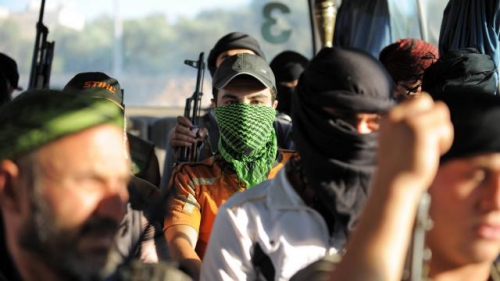
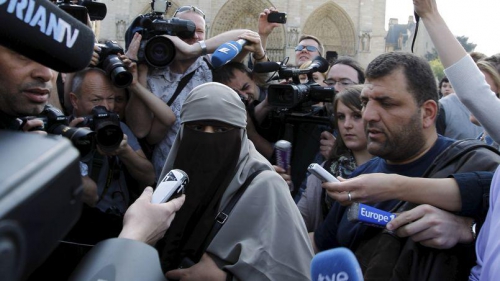

 del.icio.us
del.icio.us
 Digg
Digg

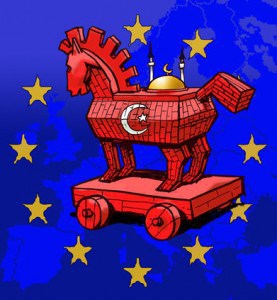 Ensuite, dans la crise actuelle des flux migratoires massifs qui sévit depuis plus d'un an et qui submerge l'Europe après avoir provoqué l'éclatement de Schengen et mis en évidence l'incompétence et la passivité criminelles des dirigeants de l'Union européenne, la Turquie ne peut pas être considérée comme un partenaire pour résoudre un problème majeur qui résulte précisément d'une action délibérée et mûrement réfléchie de sa part.
Ensuite, dans la crise actuelle des flux migratoires massifs qui sévit depuis plus d'un an et qui submerge l'Europe après avoir provoqué l'éclatement de Schengen et mis en évidence l'incompétence et la passivité criminelles des dirigeants de l'Union européenne, la Turquie ne peut pas être considérée comme un partenaire pour résoudre un problème majeur qui résulte précisément d'une action délibérée et mûrement réfléchie de sa part.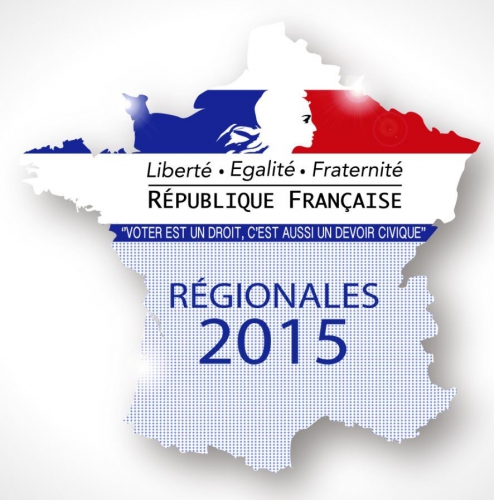
 On voit mal comment, alors que son parti est incapable de gagner un second tour dans deux des régions qui lui sont le plus favorables, elle serait capable de gagner les présidentielles en 2017, même en ayant 30% des voix au premier tour. La leçon est donc amère, même si officiellement les dirigeants du parti estiment que ces résultats sont une victoire. Le fait de n’avoir emporté aucune région pose question quant à la définition qu’ils donnent du mot « victoire ». En politique, les symboles comptent davantage que des données statistiques. C’est l’échec d’une stratégie (le « tout national ») et d’une ligne (la dénonciation de l’UMPS). Marion Maréchal-Le Pen réussit toutefois mieux que sa tante (45% chez elle contre 42% chez la seconde).
On voit mal comment, alors que son parti est incapable de gagner un second tour dans deux des régions qui lui sont le plus favorables, elle serait capable de gagner les présidentielles en 2017, même en ayant 30% des voix au premier tour. La leçon est donc amère, même si officiellement les dirigeants du parti estiment que ces résultats sont une victoire. Le fait de n’avoir emporté aucune région pose question quant à la définition qu’ils donnent du mot « victoire ». En politique, les symboles comptent davantage que des données statistiques. C’est l’échec d’une stratégie (le « tout national ») et d’une ligne (la dénonciation de l’UMPS). Marion Maréchal-Le Pen réussit toutefois mieux que sa tante (45% chez elle contre 42% chez la seconde).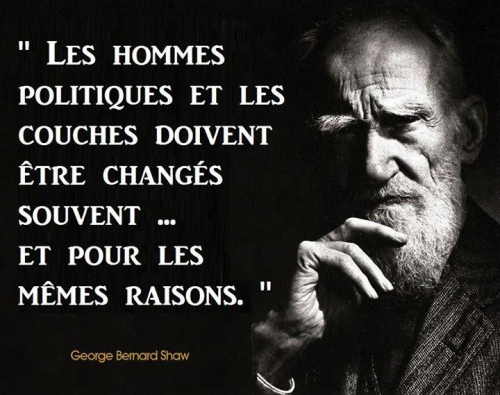
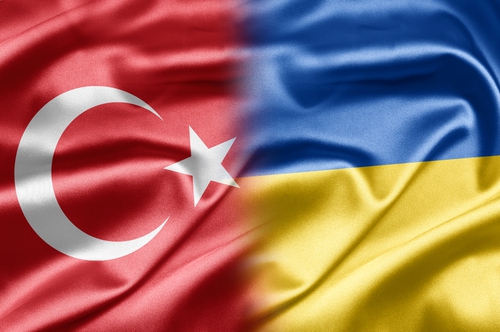


 Le vote pour le Front national se révèle une expression identitaire qui prévaut sur la question sociale, laquelle néanmoins s’y ajoute. Cette expression est plus forte parmi la jeunesse que chez les plus anciens. Enfin, elle se heurte à celle de jeunes issus de l’immigration, qui opposent leur propre culture musulmane à celle du pays d’accueil.
Le vote pour le Front national se révèle une expression identitaire qui prévaut sur la question sociale, laquelle néanmoins s’y ajoute. Cette expression est plus forte parmi la jeunesse que chez les plus anciens. Enfin, elle se heurte à celle de jeunes issus de l’immigration, qui opposent leur propre culture musulmane à celle du pays d’accueil. Existe-t-il désormais deux France ?
Existe-t-il désormais deux France ?
 Dimanche dernier, la classe politique française a pris l'une des plus grandes claques de son histoire. Il n'y a plus d'autre opposition politique que celle du Front National mais demeure donc aussi ce second parti de France, le parti de l'abstention. Le réveil des Français est tardif mais il est aussi puissamment révélateur des mensonges par omission dont les opinions ont été abreuvées ces vingt dernières années. Mensonges et escamotages qui en disent long sur la duplicité de la dualité droite/gauche. Cette dualité vient de voler en éclats. Elle ne trompera son monde.
Dimanche dernier, la classe politique française a pris l'une des plus grandes claques de son histoire. Il n'y a plus d'autre opposition politique que celle du Front National mais demeure donc aussi ce second parti de France, le parti de l'abstention. Le réveil des Français est tardif mais il est aussi puissamment révélateur des mensonges par omission dont les opinions ont été abreuvées ces vingt dernières années. Mensonges et escamotages qui en disent long sur la duplicité de la dualité droite/gauche. Cette dualité vient de voler en éclats. Elle ne trompera son monde.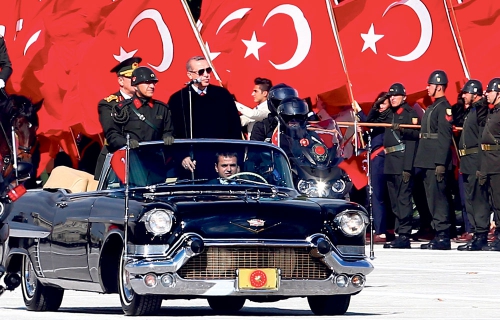
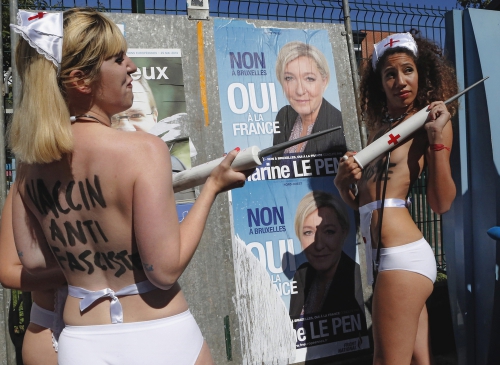

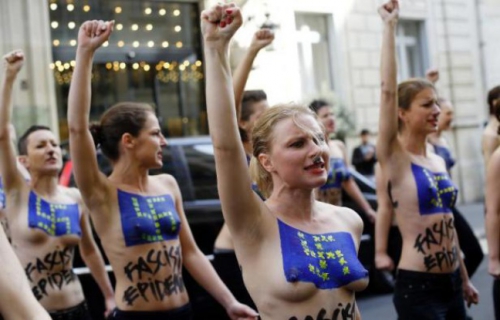
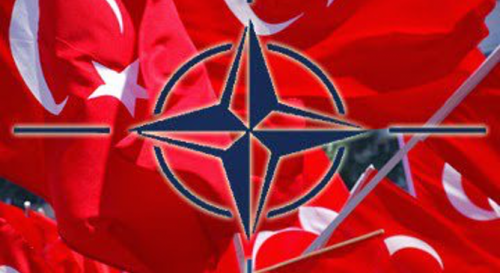
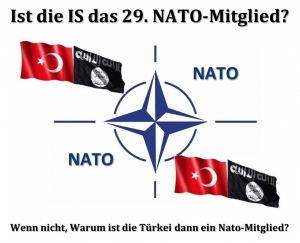 In Deutschland und Österreich sind unter der Hand wohl auch den etablierten Politikern die erheblichen Probleme mit zugewanderten Türken und vor allem die Einstellung der einheimischen Bevölkerung zu einem EU-Beitritt bekannt, weswegen (pseudo-)konservative Parteien wie die
In Deutschland und Österreich sind unter der Hand wohl auch den etablierten Politikern die erheblichen Probleme mit zugewanderten Türken und vor allem die Einstellung der einheimischen Bevölkerung zu einem EU-Beitritt bekannt, weswegen (pseudo-)konservative Parteien wie die 

 Les plus dangereuses invasions dans l’histoire des peuples ne proviennent pas tant d’attaques militaires que de migrations de masse, comme celle que l’Europe de l’Ouest est en train de vivre. La crise actuelle des ”migrants”, dont beaucoup de pseudo réfugiés, qui se déversent sur l’Europe de l’Ouest en est une nouvelle illustration. Mais pour la première fois dans l’histoire, ce sont les ”élites” qui, sans combat, trahissent et laissent se déverser les envahisseurs. La pathologie de la collaboration est à l’œuvre.
Les plus dangereuses invasions dans l’histoire des peuples ne proviennent pas tant d’attaques militaires que de migrations de masse, comme celle que l’Europe de l’Ouest est en train de vivre. La crise actuelle des ”migrants”, dont beaucoup de pseudo réfugiés, qui se déversent sur l’Europe de l’Ouest en est une nouvelle illustration. Mais pour la première fois dans l’histoire, ce sont les ”élites” qui, sans combat, trahissent et laissent se déverser les envahisseurs. La pathologie de la collaboration est à l’œuvre.


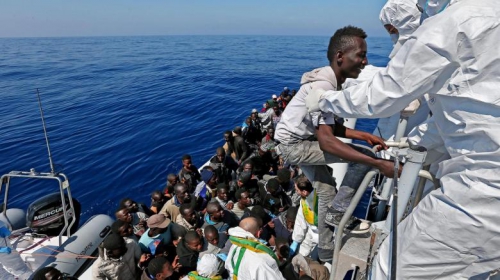
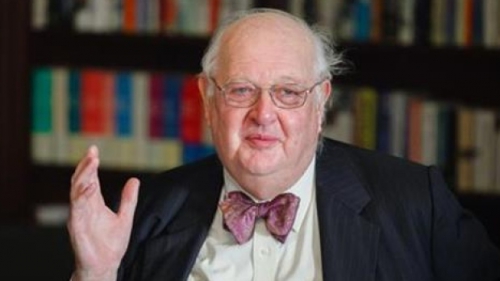
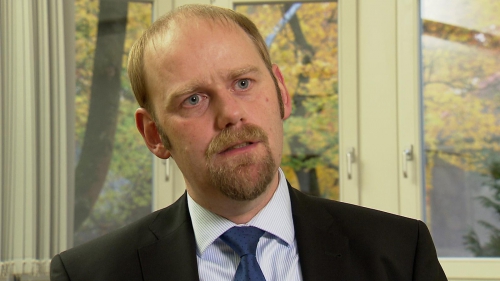
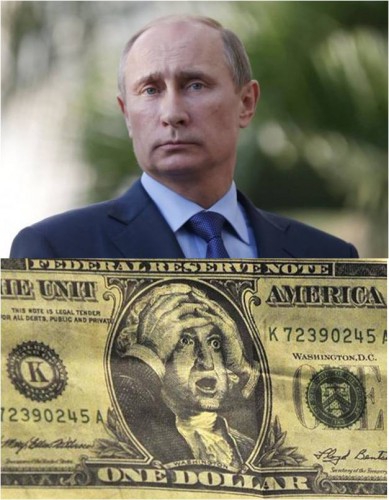 Depuis quelques temps, la Chine et la Fédération de Russie ont compris comme d’autres nations que le rôle de principale monnaie de réserve mondiale du dollar est leur talon d’Achille économique. Tant que Washington et Wall Street contrôleront le dollar, et aussi longtemps que la majeure partie du commerce mondial sera réglée en dollars, les banques centrales comme celles de Russie et de Chine seront obligées de stocker des dollars sous la forme de dette « sûre » du Trésor US. En effet, cette réserve de devises protège les économies de la sorte de guerre des devises qu’a connue la Russie à la fin de 2014. À l’époque, Wall Street et le bien nommé Bureau de Renseignement sur la Finance et le Terrorisme du Trésor US, se sont délestés de leurs roubles lors d’un accord US-saoudien visant à faire s’effondrer les prix mondiaux du pétrole. Désormais, Russie et Chine se dirigent sans bruit vers la porte de sortie du dollar.
Depuis quelques temps, la Chine et la Fédération de Russie ont compris comme d’autres nations que le rôle de principale monnaie de réserve mondiale du dollar est leur talon d’Achille économique. Tant que Washington et Wall Street contrôleront le dollar, et aussi longtemps que la majeure partie du commerce mondial sera réglée en dollars, les banques centrales comme celles de Russie et de Chine seront obligées de stocker des dollars sous la forme de dette « sûre » du Trésor US. En effet, cette réserve de devises protège les économies de la sorte de guerre des devises qu’a connue la Russie à la fin de 2014. À l’époque, Wall Street et le bien nommé Bureau de Renseignement sur la Finance et le Terrorisme du Trésor US, se sont délestés de leurs roubles lors d’un accord US-saoudien visant à faire s’effondrer les prix mondiaux du pétrole. Désormais, Russie et Chine se dirigent sans bruit vers la porte de sortie du dollar.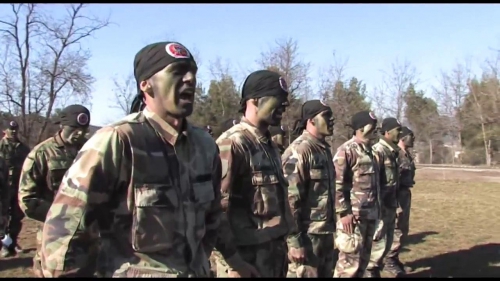
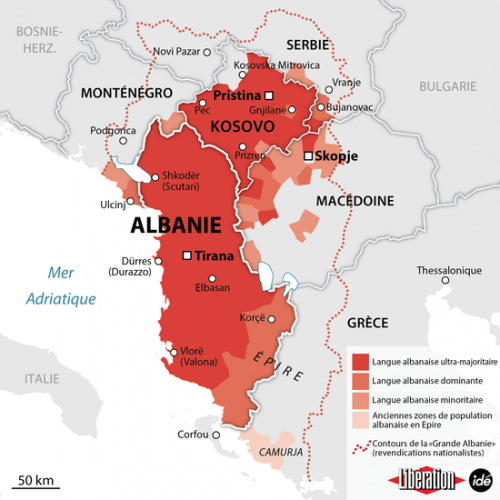 Bujar Hysa aveva invece svolto un ruolo chiave nel reclutamento di Aldo Kobuzi e di Maria Giulia Sergio. A inizio gennaio 2014 veniva intercettata una telefonata tra Hysa e il cognato di Aldo, Mariglen Dervishllari, il quale avvertiva l’imam: “Ti sto mandando mio fratello; gli ho dato il tuo numero di cellulare”. Senza il supporto della rete di Balla e Hysa sarebbe stato impossibile per i due volontari jihadisti organizzare e finanziarsi il viaggio in Siria.
Bujar Hysa aveva invece svolto un ruolo chiave nel reclutamento di Aldo Kobuzi e di Maria Giulia Sergio. A inizio gennaio 2014 veniva intercettata una telefonata tra Hysa e il cognato di Aldo, Mariglen Dervishllari, il quale avvertiva l’imam: “Ti sto mandando mio fratello; gli ho dato il tuo numero di cellulare”. Senza il supporto della rete di Balla e Hysa sarebbe stato impossibile per i due volontari jihadisti organizzare e finanziarsi il viaggio in Siria.


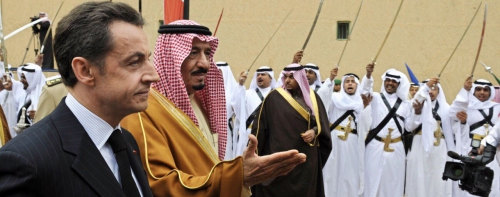
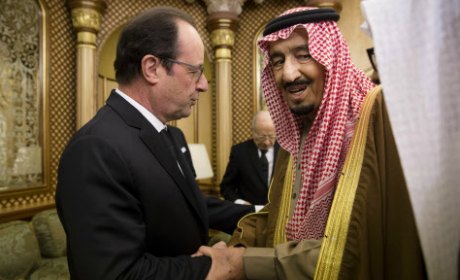
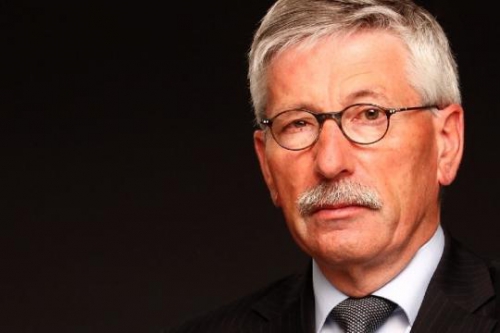
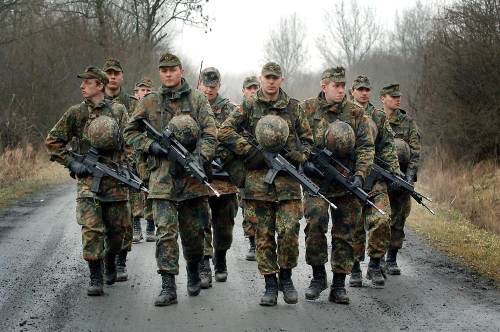
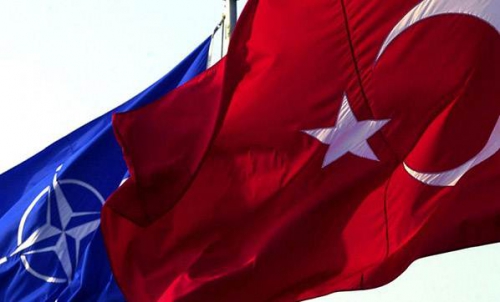
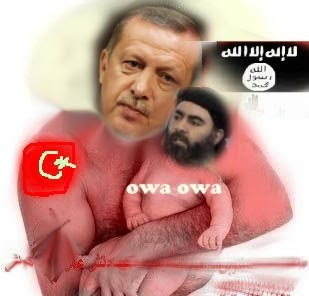 The idea that the Russians and Iranians represent a bigger to the world than ISIS doesn’t even make sense to the most clueless members of the American electorate and indeed, the very idea Putin that is more dangerous than Baghdadi isn’t consistent with Washington’s contention that Islamic State represents the greatest threat to mankind since the Reich. Furthermore, more and more Westerners are starting to understand that the Saudis and their brand of puritanical Islam are really no different from ISIS – the only real distinction between the two is in how many barrels of oil they pump each day. The implication of that rather sobering assessment is that perhaps Washington should be supporting Tehran rather than Riyadh when it comes to picking a Mid-East power broker ally.
The idea that the Russians and Iranians represent a bigger to the world than ISIS doesn’t even make sense to the most clueless members of the American electorate and indeed, the very idea Putin that is more dangerous than Baghdadi isn’t consistent with Washington’s contention that Islamic State represents the greatest threat to mankind since the Reich. Furthermore, more and more Westerners are starting to understand that the Saudis and their brand of puritanical Islam are really no different from ISIS – the only real distinction between the two is in how many barrels of oil they pump each day. The implication of that rather sobering assessment is that perhaps Washington should be supporting Tehran rather than Riyadh when it comes to picking a Mid-East power broker ally.